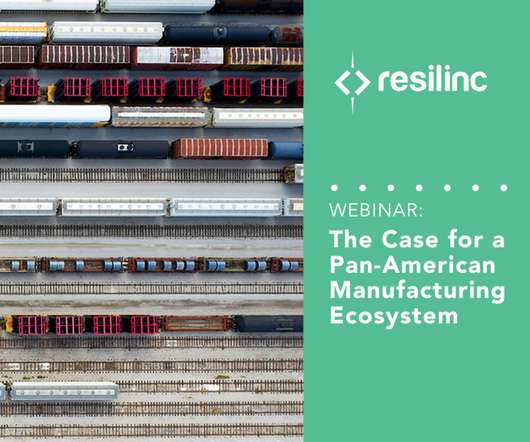COVID-19 and Ukraine Conflict Global Supply Chain News Capsule March 23 2022
Supply Chain Matters
MARCH 23, 2022
Canadian Pacific is the sixth-largest North America freight railway, and in December 2021 completed an agreement to acquire U.S. based Kansas City Southern , pending full regulatory approvals which is expected sometime this year. Surface Transportation Board on the merger with Kansas City Southern. .
















Let's personalize your content